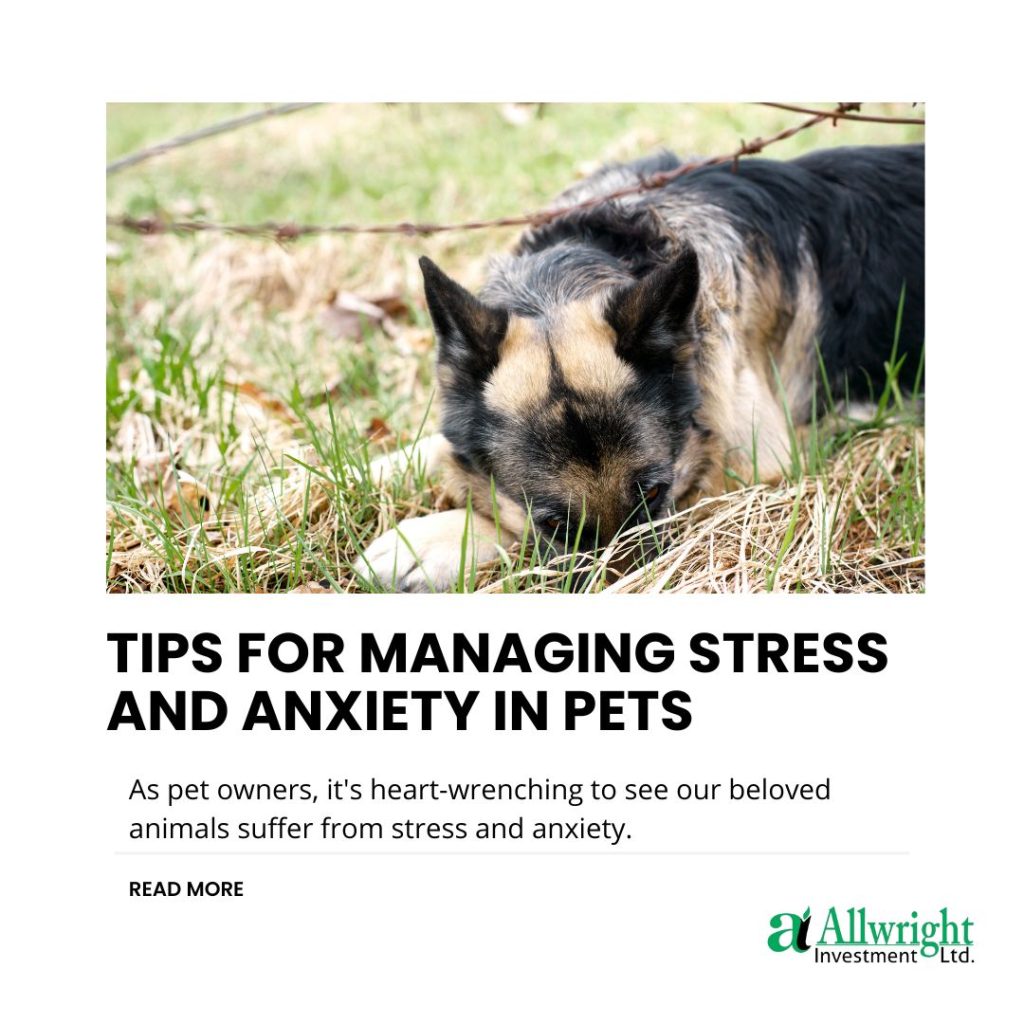
As pet owners, it’s heart-wrenching to see our beloved animals suffer from stress and anxiety. Just like humans, pets can experience these feelings due to various factors, including changes in their environment, loud noises, or separation from their owners. Managing stress and anxiety in pets is crucial for their overall well-being and happiness. Here are some effective tips to help your furry friends stay calm and content.
1. Create a Safe Space
One of the best ways to help your pet feel secure is by providing a safe and comfortable space. This could be a cozy bed, a designated room, or a quiet corner where they can retreat when they feel overwhelmed. Ensure this space is free from loud noises and other stressors.
Pro Tip:
Consider using a pet crate or a pet tent, which can offer an extra layer of security and comfort for your anxious pet.
2. Regular Exercise
Physical activity is a fantastic way to reduce stress and anxiety in pets. Regular exercise helps to release pent-up energy and promotes the production of endorphins, which are natural mood elevators.
Dogs:
- Daily walks
- Play fetch
- Tug-of-war games
Cats:
- Interactive toys
- Laser pointers
- Climbing trees or scratching posts
3. Maintain a Routine
Pets thrive on routine. Consistent feeding times, walks, and play sessions can provide a sense of stability and predictability, reducing anxiety levels.
Routine Tips:
- Stick to regular feeding schedules
- Schedule playtime at the same time each day
- Maintain a consistent bedtime routine
4. Provide Mental Stimulation
Keeping your pet’s mind engaged can help alleviate stress. Mental stimulation can come in the form of puzzle toys, training sessions, or new experiences.
Ideas for Mental Stimulation:
- Puzzle feeders
- Hide-and-seek games
- New toys or rotating existing toys
5. Practice Positive Reinforcement
Positive reinforcement training can help build your pet’s confidence and reduce anxiety. Reward your pet with treats, praise, or playtime for displaying calm behavior or successfully managing stressful situations.
6. Consider Natural Supplements
There are certain natural supplements such as CBD oil, Chamomile, that can help calm anxious pets. Always consult with your veterinarian before introducing any new supplements to ensure they are safe and appropriate for your pet.
7. Professional Help
If your pet’s anxiety is severe, it may be necessary to seek professional help. Veterinary behaviorists or certified pet trainers can provide guidance and develop a customized plan to address your pet’s anxiety.
Managing stress and anxiety in pets requires patience and a proactive approach. By creating a safe environment, maintaining a routine, and utilizing calming techniques, you can help your pet lead a happier and more relaxed life. Remember, every pet is unique, so it may take some time to find what works best for your furry friend. Always consult your veterinarian for advice tailored to your pet’s specific needs.
Invest in Allwright Investment Limited today!

Leave a comment
You must be logged in to post a comment.